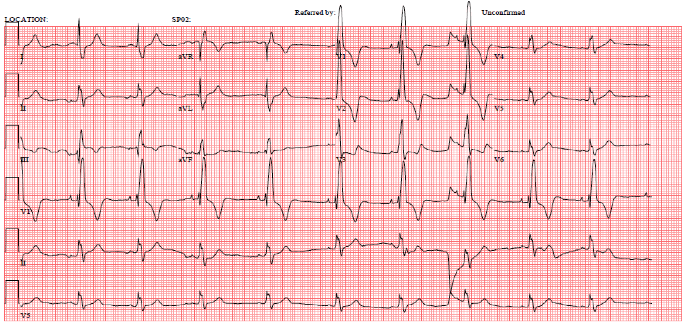Please enable JavaScript in your browser to see this interactive content.
During the consultation, the consultant reviews Kirsten’s ECG and echo. The results are unchanged from her previous scans.

The Consultant asks Kirsten if she is experiencing symptoms such as palpitations, arrhythmias, chest pain or increasing shortness of breath. Kirsten denies any symptoms.
The doctor then arranges for Kirsten to meet with the nurse specialist.
Kirsten meets the cardiologist
Cardiologist: Hello Kirsten. This clinic is called the teenage clinic or sometimes the transition clinic. This is when you get to meet the adult team for the first time because you are “transitioning” from the paediatric service. How do you feel about that?
Kirsten: OK. I have been coming here since i was a baby and i know and trust all the staff really well. Can my Mum and Dad still come with me to my clinic appointments?
Cardiologist: Of course. But that is your decision now, and part of the process of transition is about you becoming more aware of your heart condition and being the person who now gives consent. We will also talk to you about issues which might not have been discussed before.
Pulse point
What is Transition?
Transition has been described as a “multifaceted active process that attends to the medical, psychosocial and educational needs of adolescents as they transfer from child to adult centred care” (Blum,1993)
It is a process that should occur over several years, once the patient reaches their teenage years, and involves collaboration between the paediatric and adult services.
During the process of transition the responsibility for health care decisions shifts from the parent to the young person. This can be a very challenging time. Nurse specialists are well placed to help support patients and their families, and to facilitate meeting their educational needs during this period of time.


